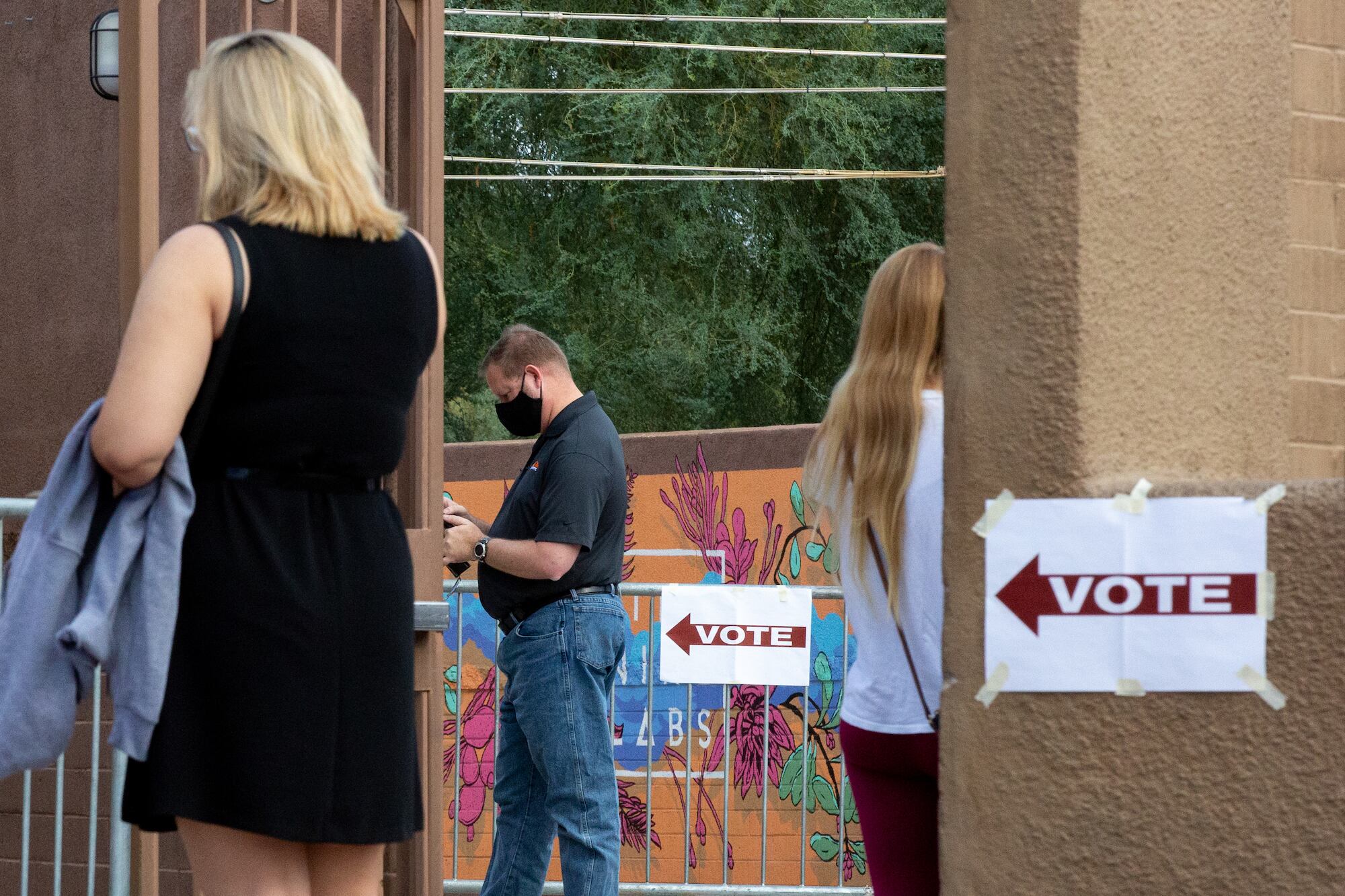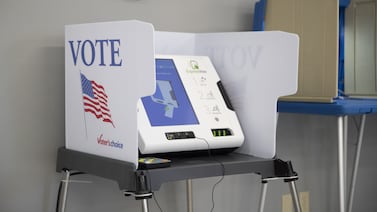A version of this post was originally distributed in Votebeat’s weekly newsletter. Sign up here.
Hey there and happy Saturday!
It’s less than three weeks until Election Day. In many states, absentee ballots have reached voters, and early in-person voting is underway. Everyone at Votebeat wants to make sure that voters have access to the information and resources they need to cast their ballot. We’d also like to hear if you or someone you know runs into any trouble at the polls.
I’m Lauren Aguirre, Votebeat’s engagement editor. I specialize in connecting Votebeat’s reporting to readers like you as well as bringing your feedback to reporters and editors. I want to help get your questions answered and make sure everyone at Votebeat knows what information you need.
As part of our service to readers, we’ve published voting guides in our four bureau states, some courtesy of our local publishing partners. Please share these guides with people you know who may need them:
- Arizona: How to vote by mail and in person
- Michigan: How to register to vote and get an absentee ballot
- Pennsylvania: What to know about voting by mail
- Texas: Everything to know about voting
At the end of each guide, there’s a form where you can let us know if you run into any issues getting access to your ballot or with voting. You can also fill it out right here.
We really do want to hear from you. Getting first-hand information about any hurdles you, or someone you know, may be facing in voting can help us notice big problems before they get out of hand. Telling us what’s happening can ensure these issues are documented and hopefully prevented next time.
Your feedback and thoughts can help Votebeat reporters on the ground in each of our bureau states. Be sure to check in with us for our ongoing coverage of the election and voting through Election Day and beyond.
If you have any questions about the form, our voting guides, or any other feedback, feel free to reach out at community@votebeat.org. This email is always open for your thoughts and ideas.
Back Then
As voters cast early ballots, it’s worth noting that the Lone Star state was one of the first to adopt early voting. The state began allowing it in 1987, subsequently amending the law in 1991 to require a minimum number of early voting locations in every county. Then-state Sen. Chet Edwards, a Waco Democrat, said he traveled frequently and wanted to vote absentee in case he missed the election, but didn’t want to have to swear he would be out of town without being sure, so he pushed his colleagues to allow for early voting without an excuse, according to an article marking the 20th anniversary of early voting in the state.
New From Votebeat
The Arizona secretary of state’s office is threatening to sue Cochise County if it moves forward with a hand count of all ballots in the midterm election, Jen Fifield reports for Votebeat Arizona.
Around 1,000 Arizona voters may have been mistakenly sent a ballot containing only federal races. Arizona election officials are reviewing the records and contacting affected voters to remedy the situation, Fifield reports for Votebeat Arizona.
Voter advocates are warning it will be hard for Maricopa County voters to read and understand their midterm ballots, because the county is using small text sizes to accommodate an extraordinary number of election contests, Fifield reports for Votebeat Arizona.
The mail-in applications and ballots of Asian, Latino, and Black Texans were rejected because of new ID requirements at much higher rates than those of white voters, according to a study released Thursday by the Brennan Center for Justice, a nonpartisan law and policy institute, Natalia Contreras reports for Votebeat Texas.
In Other Voting News
- A New York Times/Siena College poll found most Americans believe democracy is in danger, but few said that was among the most pressing issues. More than a third of the independent voters surveyed said they were open to supporting candidates who reject the legitimacy of the 2020 presidential election, the New York Times reports.
- Louisiana state officials, as part of a redistricting court case, are asking the Supreme Court to decide whether state officials can use a narrower definition of “Black,” a change experts say could make it easier for redistricting plans to minimize the strength of Black votes, NPR reports.
- A new survey of sheriffs conducted by the Marshall Project found nearly half the respondents believe their authority supersedes that of the state and federal governments, a sign of significant support for the stances of constitutional sheriffs’ groups that are currently urging their members to investigate elections.
- New police body camera footage obtained by the Tampa Bay Times shows the confused reaction of people arrested for committing voter fraud because they registered and voted despite felony convictions. Watchdogs have questioned the charges, pointing to voters’ confusion over their eligibility and the state’s failure to keep ineligible voters from the rolls.
- Republicans have filed a new lawsuit asking the Pennsylvania Supreme Court to stop undated mail ballots from being counted in November’s election. State law requires voters to write the date on the ballot’s outer envelope. The new filing is the latest twist in a long-running legal battle over whether ballots without the date should be counted, or whether the technical violation means the ballot should be rejected, the Philadelphia Inquirer reports.
Lauren Aguirre is Votebeat’s engagement editor, focused on connecting people to information they need about voting in their state. She is based in Philadelphia. Contact Lauren at laguirre@votebeat.org.






